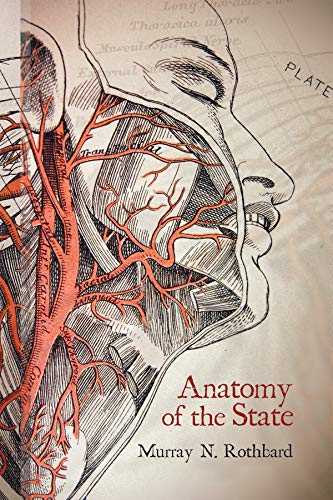[From the Rothbard Archive, originally published in The New York Times, September 4, 1971.]
On Aug. 15, 1971, fascism came to America. And everyone cheered, hailing the fact that a “strong President” was once again at the helm. The word fascism is scarcely an exaggeration to describe the New Economic Policy. The trend had been there for years, in the encroachment of Big Government over all aspects of the economy and society, in growing taxes, subsidies and controls, and in the shift of economic decision-making from the free market to the Federal Government. The most recent ominous development was the bailout of Lock heed, which established the principle that no major corporation, no matter how inefficient, can be allowed to go under.
But the wage-price freeze, imposed in sudden hysteria on Aug. 15, spells the end of the free price system, and therefore of the entire system of free enterprise and free markets that have been the heart of the American economy.
The main horror of the wage-price freeze is that this is totalitarianism, and nobody seems to care. For it is an open secret in Washington that wages and prices cannot be simply and starkly frozen forever, and that ninety days will scarcely be enough to solve any economic problem. It is an open secret that the Administration is planning to use the ninety days to prepare a permanent bureaucracy to administer permanent wage and price controls.
 The Anatomy of the Sta...
Buy New $2.99
(as of 05:25 UTC - Details)
The Anatomy of the Sta...
Buy New $2.99
(as of 05:25 UTC - Details)
The first challenge to hurl at our Caesar in the White House is not economic but moral: quo warranto? By what right do you use coercion to tell buyers and sellers what prices they may or may not agree upon, or employers and workers what wages they may pay? If two kids are swapping baseball cards, and they decide to swap two Hank Aarons for one Willie Stargell, by what right does a government step in and force the kids to exchange those cards at one for one or whatever other “price” the government in its wisdom deems proper? By what moral right, and by what constitutional right? What possible stretch of the Constitution gives the President the right to freeze rents in a Sioux City boarding house?
The supposed across-the-board freeze is, in any case, a fraud and a hoax. If it is really universal, why is the President deliberately raising the prices of imported goods, both by the sudden 10 percent surcharge and by devaluing the dollar? If it is really universal, why is the scheduled Oregon cigarette tax increase going into effect? Or is the President saying that a tax is not a price? Why are interest rates not frozen? And, if all prices are to be frozen, how is it that Secretary Connally exulted when the Aug. 15 order increased stock prices by over thirty points? Why is a rise in stock prices good and a rise in other prices evil? Finally, why does the money supply, the increase of which has been responsible for the price inflation, continue to increase rapidly? Why isn’t the money supply frozen?
The worst part of our leap into fascism is that no one and no group, left, right or center, Democrat or Republican, businessman, journalist or economist, has attacked the principle of the move itself. The unions and the Democrats are only concerned that the policy wasn’t total enough, that it didn’t cover interest and profits. The ranks of business seem to have completely forgotten all their old rhetoric about free enterprise and the free price system; indeed, The Washington Post reported that the mood of business and the banks is “almost euphoric.” Small wonder, when stocks are rising, and General Motors and Ford gain a large rise in the prices of competing foreign cars and a reduction in their own excise taxes. The conservatives; too, seem to have forgotten their free enterprise rhetoric and are willing to join in the patriotic hoopla. The New Left and the practitioners of the New Politics seem to have forgotten all of their rhetoric about the evils of central control of the economy and society. Academic economists, in perhaps the greatest betrayal of all, seem to have forgotten one of their finest economic truths: that price controls only cause shortages and misallocations and do not work in checking inflation. Until recently, most economists knew that trying to check inflation through price controls is akin to combatting a patient’s fever by manually pushing down the mercury level in the thermometer.
All the old convictions, all the old devotion to free enterprise, to economic truth, to the Constitution, have been blithely tossed aside by all sectors of the population. How much does it take? Is the American public prepared to swallow any despotism, as long as it is presented forcefully and dramatically? Is there no spunk, no love of freedom left in America? In the last analysis, only the American public can break the new chains that our Caesar has forged. Only the American public can render the wage-price controls unenforceable, by “voting with their feet” in their everyday lives. But to do this, they must be awakened from their torpor by some voice of dissent, someone somewhere who is willing to raise the cry: “This shall not pass.”
Note: The views expressed on Mises.org are not necessarily those of the Mises Institute.






